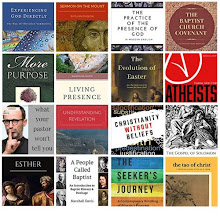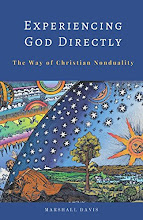That sends the frozen-ground-swell under it,
And spills the upper boulders in the sun;
And makes gaps even two can pass abreast.
Robert Frost begins his poem Mending Wall with those words. I think about this poem every spring
when I repair the wall that borders our property. In my case it is not
“frozen-ground-swell” that is the culprit. Neither is the problem “elves,” as Frost
suggests later in the poem. For me it is the snow plow.
This particular wall borders our driveway and drops off into
our neighbor’s property. Although the wall is about four feet high on our
neighbor’s side, it is only a few inches above the ground on our side. The
location of the wall means that when the plow pushes the snow from our driveway,
it inadvertently topples the top layer of rocks off the wall and over the
embankment. (The photo accompanying this post shows our house and the wall over
a hundred years ago.)
So each spring I hop over the wall and mend the wall.
Actually these days I don’t do much hopping anymore. Instead I take the long
way around the wall and trespass on our neighbor’s property. Then I hoist the
boulders back into place. The heaviest ones I leave for my sons to help me lift.
As I look down to the base of the wall, I see that in previous years I never
got around to some of the heaviest stones. They are slowly sinking into the
detritus in the yard below.
The wall is a metaphor. Frost undoubtedly had profound things
in mind concerning the walls that separate people and peoples. That aspect is
easy enough to apply to the walls – both physical and otherwise - between
nations, races, ethnic groups, religions, and political parties today. Yet such
lofty thoughts are not where my mind goes during this wall-mending season.
I am thinking more personally about change. Everything
changes. Time pulls down all the stone walls I see along the country roads
where I live. I take a hike in the woods, and I see the remnants of stone walls
that used to separate properties many years ago. I sometimes spot stone cellar
holes where houses like mine once stood. Houses fall like walls.
Things change. Everything falls apart. Entropy reigns in the
natural world. For that reason I guess I should not be surprised that the American
experiment seems to be falling apart. Our society is tearing at the seams like
an old shirt. If I was a better student of history I would have expected this.
Our bodies fall apart as we age. We lug them to physicians to
patch them, but then another part fails. Conversations with friends turn into
“organ recitals.” We list the bodily organs that are failing at the moment. We
complain about the quality of our joints. And I am not referring to the cannabis
variety that New Hampshire is considering legalizing! At a certain age ailments
are seldom fixed permanently. They are just added to the list of physical nuisances
we learn to live with.
Something there is that doesn’t love order. It tends to
disorder. That is the way of this material world. That is the way of our lives.
The good news is that contemplating change leads us to ponder the Changeless.
Although time passes, we still feel like the same person we were as children,
teens or young adults. Sure, we recognize changes to our minds as well as our
bodies, but we intuitively sense that our essence is changeless. I am reminded
of that whenever I see an old friend. I view them as young people in disguise.
The 19th century hymn “Abide with Me” is a
meditation on such change. The second stanza ends:
Change and decay in all around I see
O Thou who changest not, abide with me.
These days I focus on that which changes not. It puts the landscape of life in perspective.
















